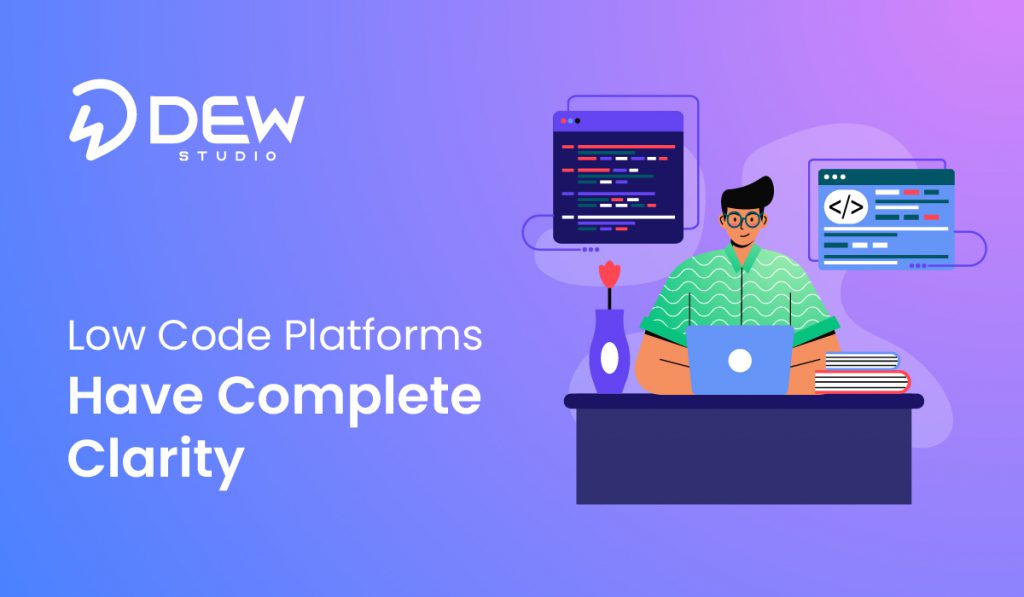
Are you looking to stay ahead in the competitive hospitality and tourism industry by enhancing customer experiences?
Nowadays, customer experience stands out as the pivotal element that distinguishes successful businesses within the hospitality and tourism sectors. Research shows that 86% of customers are willing to pay more for a better customer experience (Source: American Express), underscoring the importance of delivering exceptional services tailored to the needs and preferences of each guest.
In response to this trend, many forward-thinking businesses are turning to innovative solutions, such as low-code technology, to revolutionize their operations. For instance, imagine a hotel that utilizes low-code platforms to streamline booking processes, personalize guest interactions, and swiftly address customer inquiries, creating a seamless and unforgettable stay for every visitor.
Understanding Low-Code Solutions
Low-code development platforms have gained significant popularity in recent years. These platforms enable businesses to develop software applications with minimal hand-coding, using visual interfaces and pre-built components. This approach empowers business users with little or no coding experience to actively participate in the development process, making it easier and faster to create functional applications.
- With low-code solutions, businesses in the hospitality and tourism sectors can address their specific needs without relying solely on traditional software development methods.
- From website development to mobile applications and customer relationship management systems, low-code platforms offer an array of tools and features that can be customized to match unique requirements.
The Benefits of Low-Code Solutions in Hospitality and Tourism
There are many benefits to low-code solutions in hospitality and tourism. Let’s take a look at these benefits in brief.
Rapid Application Development:
Low-code platforms enable businesses to develop applications quickly, reducing the time to market. This is especially crucial in the dynamic hospitality and tourism industries, where speed is often key to gaining a competitive advantage.
- For example, a hotel chain looking to launch a new loyalty program can use a low-code platform to develop a mobile application that allows customers to easily sign up, earn points, and redeem rewards within a short timeframe.
Flexibility and Customization:
Low-code solutions offer flexibility and customization options, allowing businesses to tailor applications to their unique requirements. Whether developing a custom booking system or integrating with third-party services, low-code platforms provide the flexibility needed to create a solution that perfectly suits the business’s needs.
- For instance, a tour operator can use a low-code platform to build a booking system that integrates with various airline and hotel systems, providing customers with a seamless and personalized booking experience.
Improved Efficiency:
Low-code solutions streamline operations by automating manual processes and integrating different systems into a unified platform. This eliminates the need for manual data entry, reduces errors, and improves overall operational efficiency.
- For example, a cruise line can use a low-code platform to develop a guest management system that automates the check-in process, synchronizes passenger data across multiple systems, and provides real-time updates to crew members, resulting in smoother operations and improved guest satisfaction.
Enhanced Customer Engagement:
Low-code platforms enable the creation of personalized and interactive user interfaces, enhancing the customer experience. From personalized booking processes to real-time communication channels, businesses can leverage low-code solutions to engage customers more effectively and provide a seamless experience.
- For instance, a resort can use a low-code platform to develop a mobile application that offers personalized recommendations for activities and amenities based on guests’ preferences, allowing them to tailor their experiences and create unforgettable memories.
Cost-Effective:
Traditional software development can be both time-consuming and expensive. Low-code solutions offer a cost-effective alternative, reducing the development time and lowering the resource requirements. Moreover, these platforms often come with pre-built components and integrations, reducing further development costs.
- A small bed and breakfast accommodation can use a low-code platform to develop a website with an integrated online booking system, eliminating the need for a costly custom-built solution and increasing their online visibility.
Use Cases of Low-Code Solutions in Hospitality and Tourism
1. Booking Systems
Booking systems lie at the heart of the hospitality and tourism industries. Low-code solutions enable businesses to develop custom booking systems that integrate with their existing infrastructure. These systems can automate the reservation process, manage availability, and provide real-time updates to customers.
For example, a vacation rental platform can use a low-code platform to develop a booking system that allows property owners to manage their listings, handle reservations, and communicate with guests, all in one centralized platform.
2. Mobile Applications
Mobile applications have become an essential part of the travel experience. Low-code platforms allow businesses to develop mobile applications quickly and cost-effectively. These applications can offer features like real-time notifications, personalized recommendations, and in-app booking capabilities, enhancing customer engagement and convenience.
For instance, a travel agency can use a low-code platform to build a mobile application that provides itinerary management, real-time flight updates, and personalized recommendations for restaurants and attractions, offering a comprehensive travel companion to customers.
3. Customer Relationship Management (CRM) Systems
CRM systems are crucial for maintaining strong relationships with customers. Low-code solutions make it easier to develop CRM systems tailored to the specific needs of businesses in the hospitality and tourism sectors. These systems can provide a 360-degree view of customer interactions, enabling personalized services and targeted marketing campaigns.
For example, a hotel chain can use a low-code platform to develop a CRM system that tracks customer preferences, manages loyalty programs, and enables personalized communications. This allows them to deliver exceptional service and build long-lasting relationships with guests.
4. Workflow Automation
Hospitality and tourism businesses often have complex and interconnected workflows. Low-code platforms enable manual process automation, reducing errors and improving operational efficiency. From guest check-ins to housekeeping schedules, workflow automation can reduce administrative burdens and ensure smooth operations.
For instance, a resort can use a low-code platform to automate the housekeeping process, such as assigning cleaning tasks, tracking inventory, and sending notifications to staff to optimize efficiency and ensure timely room turnovers.
5. Data Analytics and Personalization
Low-code solutions can be integrated with data analytics platforms to provide businesses with valuable insights into customer behavior and preferences. This allows businesses to deliver personalized experiences, recommend tailored offers, and improve overall customer satisfaction.
For example, a theme park can use a low-code platform to integrate with a data analytics solution to analyze visitor data, such as ride preferences and spending patterns, and leverage this information to personalize offers, create targeted marketing campaigns, and optimize park operations.
Conclusion
Low-code solutions are the missing piece that the hospitality and tourism industry needs to take to the next level. With the potential to transform customer experiences and streamline operations, it’s like finding a hidden treasure chest of possibilities. And who wouldn’t want that?
By adopting low-code technologies, businesses in the hospitality and tourism sectors can create memorable and personalized experiences that will drive customer loyalty and satisfaction, ultimately setting themselves apart in a fiercely competitive industry. But, of course, not all low-code platforms are created equal. It’s like picking the perfect vacation destination – you want something that suits your unique requirements and makes your competitors green with envy.
So why wait? Jump on board with DewStudio and let it give your business the boost it needs to stand out in this cutthroat industry. Don’t miss out on this golden opportunity – start your journey with DewStudio today!


